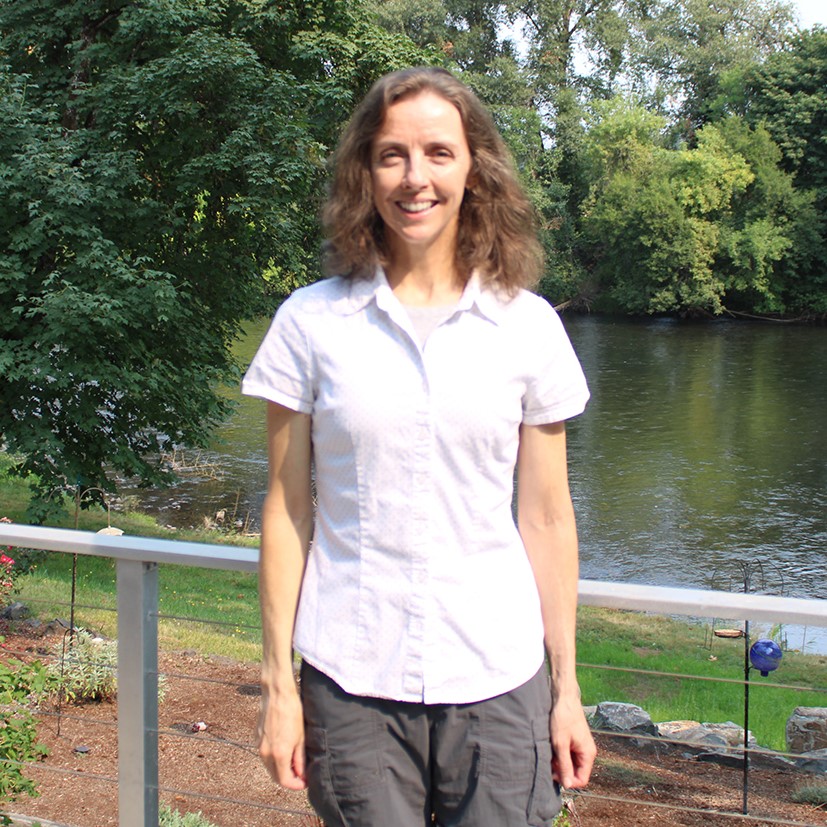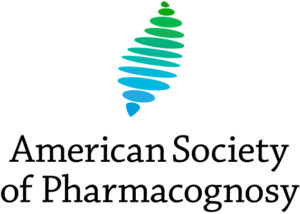
Dr. Kerry McPhail PHOTO: DANIEL SEEMILLER
By Kerry McPhail, PhD
NOTE: A video of President McPhail’s address to members at the July 28th ASP Business Meeting is available at www.pharmacognosy.us/presidential-remarks-asp-business-meeting-2021/
I am profoundly moved and honored to have this opportunity to serve the ASP as president. The ASP has been an anchor like no other for me since shortly after I arrived in the United States from Zimbabwe, twenty-one years ago now. The stated mission of the American Society of Pharmacognosy is “to promote and develop the science of pharmacognosy and all aspects of those sciences related to natural products.” The role of the ASP then is to cultivate interest and participation in, as well as expand the scope of, interdisciplinary natural product sciences. Why? I cannot think of another field of research that so clearly belongs to all people and that intersects so many current critical challenges in human and environmental health and well-being globally. For many, the turmoil of the COVID-19 pandemic, momentous social justice movements and unprecedented simultaneous weather events around the world have brought an immediacy and focus on what is important and the need to take action. Natural products research captures the imagination of people of all ages and, as such, has an important role to play in combating the anti-science and education sentiment that is alarmingly pervasive, even as we rely on science and technology to combat an ongoing global pandemic and climate change. Not only do we need to “promote and develop” natural products science but also showcase and leverage it as an inherently diverse and international science that relies on collaboration. Collaboration here implies a tolerance for diverse ideas and a commitment to free, objective inquiry based on a culture of evidence and critique. Certainly, the numerous ASP members named among the 100,000 most influential scientists in a 2020 PLoS Biology article (https://www.pharmacognosy.us/asp-members-recognized-among-most-influential-scientists/) evince collaborative, interdisciplinary natural products research.
I cannot think of another field of research that so clearly belongs to all people and that intersects so many current critical challenges in human and environmental health and well-being globally.
The ASP directly promotes critical biomedical research for human health by fostering national and international scientific collaborations through its organized events and administration of Society awards. While the pandemic shutdown precluded the usual forum of the ASP annual meetings, twenty-four Natural Product Sciences webinars were offered from April 2020 to June 2021, thanks to members of the Webinar and Publicity Committees as well as ASP Business Manager Laura Stoll. The Natural Product Sciences webinars featured diverse research themes addressed by forty-four presenters, of which twenty-one were women, from Asia, Central and South America, Europe, and academia and industry in the United States. Virtual meetings organized by the Younger Members Committee, such as the recent Fridays in July series “Vanguards of Natural Products,” also encouraged broad international participation. Importantly, significant non-seminar discussion time and poster sessions were facilitated on the interactive virtual platform.
If there is anything positive to have come from the cancellation of the 2020 (ICNPR, San Francisco) and 2021 (Grand Rapids, Michigan) in-person annual meetings, it is the actualization of ranging events in which participation was potentially limited only by time zone rather than by the cost or scheduling of travel. I believe that a majority of us fervently wish for an in-person meeting in July 2022. Regardless, we expect to maintain some frequency of virtual events, including both scientific and professional development webinars and potentially a second annual Vanguards of Natural Products event highlighting early-stage researchers. The foundations laid in the past twelve to eighteen months for virtual meetings and social media communication and networking will continue to be refined moving forward, as the Society adapts to the COVID-19 pandemic and post-pandemic era. The ASP officers and committees look forward to ideas and participation by any and all ASP members. We are also cautiously optimistic and excited to see the developing program for the 2022 annual meeting in Charleston, South Carolina. Wide-ranging workshops and an extra day of programming will allow us to better catch up with each other and also with presentations from award recipients over the past two years.
This year we will have the opportunity to vote on designating the ad hoc Diversity, Equity and Inclusion (DEI) Committee as a standing committee. This is a necessary step, for which I applaud the past and present co-chairs, as we all seek to understand and take action against enduring systemic racism. Nevertheless, it is a jarring reality that inequity and racism will require the constant attention of a standing committee for the foreseeable future. The Society is indebted to the DEI Committee for their continued work to address critical “leaks” in the educational pipeline for Black, Indigenous and Latinx young people to explore and pursue careers in natural products research.
Not only do we need to “promote and develop” natural products science but also showcase and leverage it as an inherently diverse and international science that relies on collaboration.
The work of the DEI committee was most recently evident via the August 12 NPS webinar featuring inspiring talks from the seven women undergraduate ASP summer research fellows (SRFs). In ten minutes each, these seven young researchers gave us a glimpse of the tremendous amount of research and learning accomplished in ten short weeks. Some of them had no prior laboratory experience and all missed components of in-person laboratory training in their degree curricula during the pandemic shutdown. So, congratulations and thank you to the inaugural ASP summer research fellows: Ama Boamah (Mentor - Jaclyn Winter, University of Utah), Victoria Casimir (Mentor - Eduardo Caro Diaz, University of Puerto Rico), Mitchelle Katemauswa (Mentor - Robert Cichewicz, University Of Oklahoma), Nana Oblie (Mentor - David Rowley, University of Rhode Island), Jessia Rahe (Mentor - Amy Lane, University of North Florida), Ariel Richards (Mentor - Erick Leggans, Grinnell College) and Lorena Valentin (Mentor - Jeffrey Rudolf, University of Florida). Congratulations and thanks also to the faculty mentors and their lab members, whose engagement and dedication to providing rich research experiences were so evident in the webinar presentations. Lesley-Ann Giddings, Christine Salomon and Brian Murphy critically provided a robust support network, including weekly professional development and networking meetings, throughout the program to maximize the impact of these learning experiences. So what next? It is essential now to establish longer term financial security for the ASP SRF program, and indeed other research awards, so that they may have the sustained impact envisioned by the generous donors and ASP members who worked to enable their successful launch. The Audrey S. Bingel Fellowship for Female Scientists is another recently implemented, successful award program that the Society strives to perpetuate. If you are looking for ways to contribute to equity in our Society and the natural products sciences, or to pay forward to the next generation, please consider donating directly to one of these award programs through the ASP Foundation.
Natural products research is inherently an international science that is rooted in and relies on global biological diversity. Cultures across the world have documented use of natural products as traditional medicines for thousands of years. Many of us have traveled and developed collaborations across the globe that have been instrumental in our careers. Even when investigating soil microorganisms from our own backyards, we rely on published international data and knowledge and increasingly turn to accessible, globally-curated databases to accelerate our natural product characterizations and to gain insight on metabolic patterns and processes across species and/ or environments. The benefit to human health brought about by translation of natural products to medicines and supplements is a tangible message that conveys the importance of conserving and recovering biological diversity.
In addition to broadcasting this ultimate outcome of “discovering nature’s molecular potential,” it is fitting for us to consider the environmental impact of contemporary natural products research practices. Advances in technology have dramatically lowered analytical detection limits for structure determination and allowed miniaturization of biological assays. Combined with sharing and access to open data and software tools for comparative, multi-omic analyses, the outcome ultimately is less travel for less biological material needed for potentially more targeted research driven by more defined hypotheses. Networking with peers and colleagues nationally and internationally leverages, accelerates and broadens the impact of prior and current natural products research.
In the year ahead, I look forward to working with and getting to know many of you as we look to recover from the immediate COVID-19 pandemic and adapt to a postpandemic era. Thank you to those of you who continue to be involved in ASP committees, and thank you to so many who have newly accepted invitations or volunteered to be involved. Continued work to expand and articulate the tangible benefits of membership in our Society and thus grow our community is not possible without your variety of ideas, skills and talents.
It is essential now to establish longer term financial security for the ASP SRF program, and indeed other research awards, so that they may have the sustained impact envisioned by the generous donors and ASP members who worked to enable their successful launch.
Vol 57 Issue 3
NEWSLETTER STAFF
Edward J. Kennelly, PhD
Editor In Chief
Patricia Carver, MA
Copyediting & Proofreading
Nancy Novick
Design & Production
Gordon Cragg, PhD
Mario Figueroa, PhD
Joshua Kellogg, PhD
Michael Mullowney, PhD
Guido Pauli, PhD
Patricia Van Skaik, MA, MLS
Jaclyn Winter, PhD
ASP Newsletter Committee
Contribution deadlines
Spring: Feb. 15; Summer: May 15 Fall: Aug. 15; Winter:Nov. 15
Please send information to
Edward J. Kennelly, PhD Editor In Chief,
ASP Newsletter
Department of Biological Sciences
Lehman College, CUNY
250 Bedford Park Blvd. West Bronx, NY 10468
718-960-1105
asp.newsletter@
lehman.cuny.edu
ISSN 2377-8520 (print) ISSN 2377-8547 (online)

